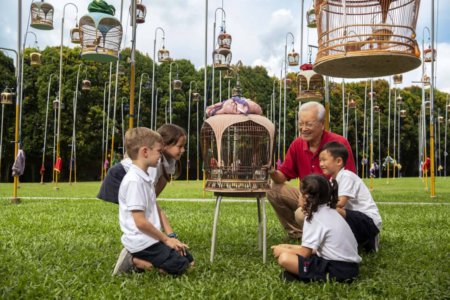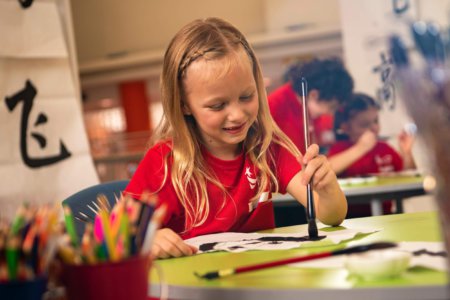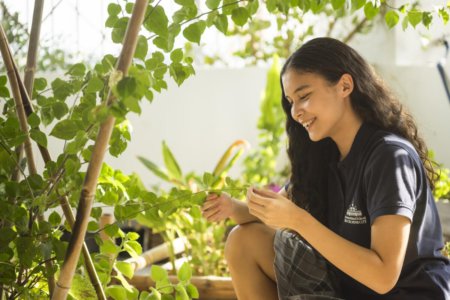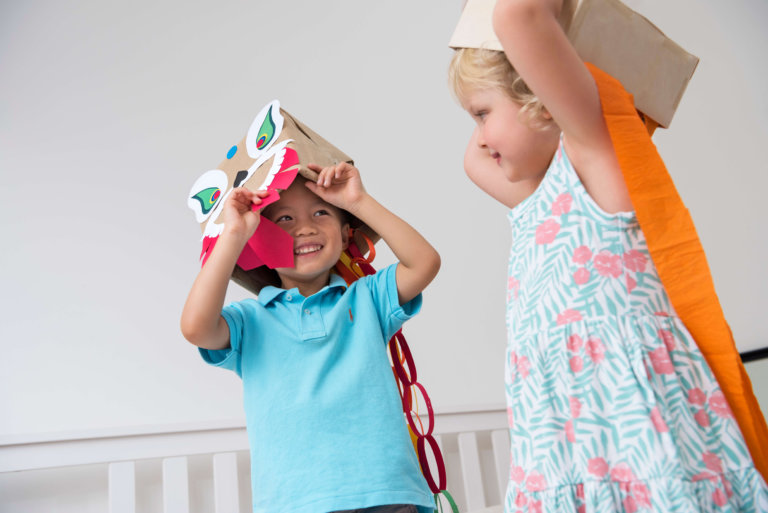
A major concern for many parents is finding the right school for their children when relocating to a new country or city. Those moving to Southeast Asia are luckier than others. There is a wide range of international schools to choose from, catering to a variety of backgrounds, abilities and skills. Many offer versatile curricula, from the English National Curriculum to the International Baccalaureate (IB).
Classes are often taught in English, paired with state-of-the-art learning environments and plenty of extracurricular activities. The result? Well-rounded students, as early as from preschool and pre-kindergarten levels. Gone are the days where academic success is enough to make it — for young learners, the earlier the development, the better. Today’s globalised world requires learners to possess a balanced combination of hard and soft skills to become 21st century leaders. It pays to start young.
For parents, it can be hard to send their precious little ones to a new school. That becomes easier when a school has a track record of providing the right foundation for future success. Here are three international schools in Southeast Asia that are nurturing the youngest of learners — from Singapore to Brunei and Thailand, we’ve got you covered:
Singapore American School
At Singapore American School (SAS), it is never too early for young learners to collaborate, ask questions, investigate and gain knowledge about things that genuinely matter to them — all while having fun. The early learning center makes sure of this. It caters to preschool and pre-kindergarten learners, using a concept-based and inquiry-driven approach. Teachers design lessons and activities around each student’s interests and pupils lead the way in developing their own projects.
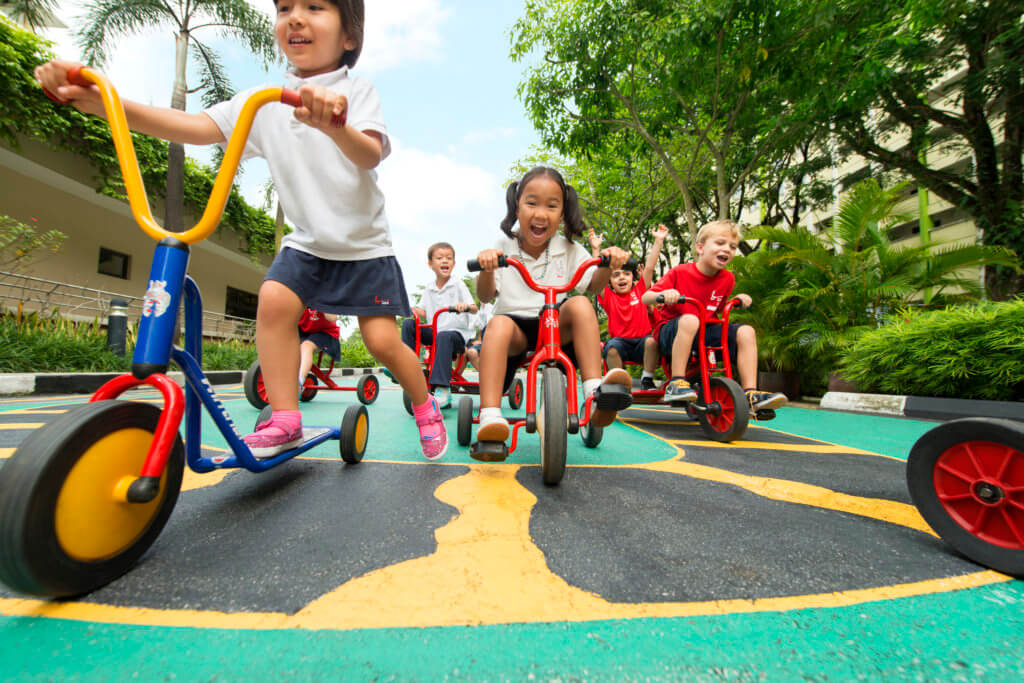
Source: Singapore American School
All of these take place in a newly renovated early learning center, which features bright, kid-friendly learning hubs and includes a library nook, block area, makerspace and dress-up corner. Outdoor areas are not forgotten. “We are very intentional in using our outdoor areas as fully as possible and infusing natural elements throughout our indoor spaces,” says early learning center director Jo McIlroy.
Established in 1956, SAS believes that play and learning go hand in hand for young students. Teachers here are well versed in the best practices of early childhood education. Professional development is a priority to ensure educators are continuously deepening their knowledge and practice.
What makes the SAS early learning center stand out is its curriculum, which includes daily Chinese language and perceptual motor classes as well as literacy, mathematics and units of inquiry based on student curiosity. When they progress to elementary school, students may choose to continue in the SAS Chinese Immersion Program. This option will help them gain high-level mastery of the language while becoming responsible and engaged global citizens. To learn more about SAS and its offerings, sign up for these virtual events on Jan. 28, 2021: Chinese Immersion (9 to 10 a.m.) and Early Years (2 to 3 p.m.).
Jerudong International School
Jerudong International School (JIS) is a co-educational boarding and day school in Brunei that welcomes students from ages two to 18. Most of the school’s qualified teachers are primarily from the UK. Educators are committed to providing a challenging curriculum that is sure to develop well-rounded students who will continue to progress to world-leading universities.
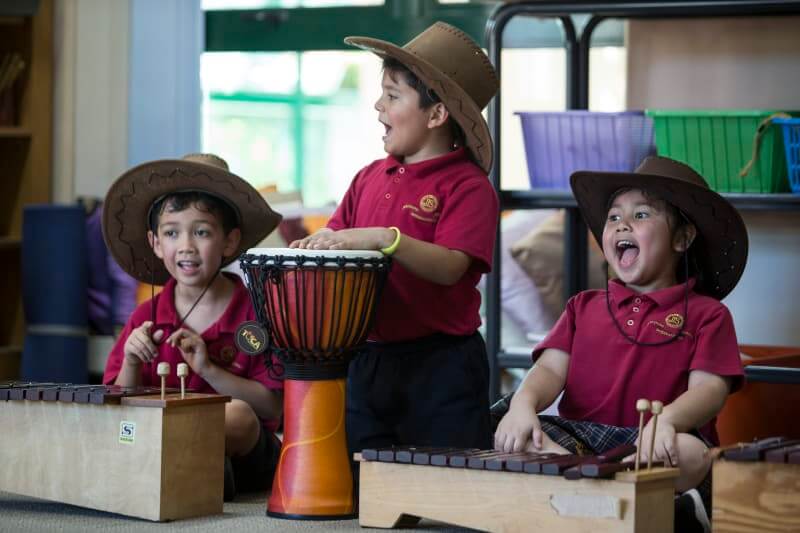
Source: Jerudong International School
Founded in 1997, Jerudong’s student profile lists six key aims: Engagement, Leadership, Communication, Thinking, Resilience and Integration. Students are encouraged to strive to reach these aims regularly. Each time a student accomplishes something in alignment with one of these aims, they are awarded with a Polio Point. Each earned point donates US$1 to UNICEF’s fight against Polio.
Children of the Junior School work closely with their class teacher who will focus on a number of goals, including the development of English language competence, a passion for reading and an understanding of mathematical concepts. Junior School teachers also take care of the pastoral needs of children. This support is to ensure students feel the sense of community and togetherness that JIS is distinctly known for.
At JIS, student development starts early and the end goal is to raise 21st century leaders with heart in a vibrant environment that nurtures independent, confident learners. With numerous opportunities from Junior School up to Senior School, JIS students can have the space and support to grow, setting the pathway for them to become leaders of tomorrow.
UWC Thailand
The Primary Years Programme (PYP) at UWC Thailand International School encompasses preschool to Grade 5. Students enrolled into the programme explore a concept-driven curriculum, designed around “Units of Inquiry,” which give students an opportunity to shape their own learning through genuine inquiry, research and reflection.

Source: UWC Thailand
The PYP curriculum balances inquiry with direct instruction to ensure students have the necessary knowledge in areas such as phonics, spelling and math concepts. These academic experiences are further enriched by dedicated class times for art, music, physical education, Thai language and culture, and last but definitely not least, mindfulness. What makes the experience even more personal is that UWC’s class sizes are modest, ensuring teachers receive the opportunity to differentiate the needs of each student.
Founded in 1962, this transformational school is accredited by a number of leading education organisations all over the world such as the Council of International Schools, the International Baccalaureate Organisation and the East Asia Regional Council of Schools. To maintain its accreditation, UWC regularly partakes in evaluation visits. While academic achievement is important, the school focuses on a much wider experience, recognising that grades do not define its students and this mindset has fostered a global alumni and student community of over 60,000, located all over the world.
*Some of the schools featured in this article are commercial partners of Study International








